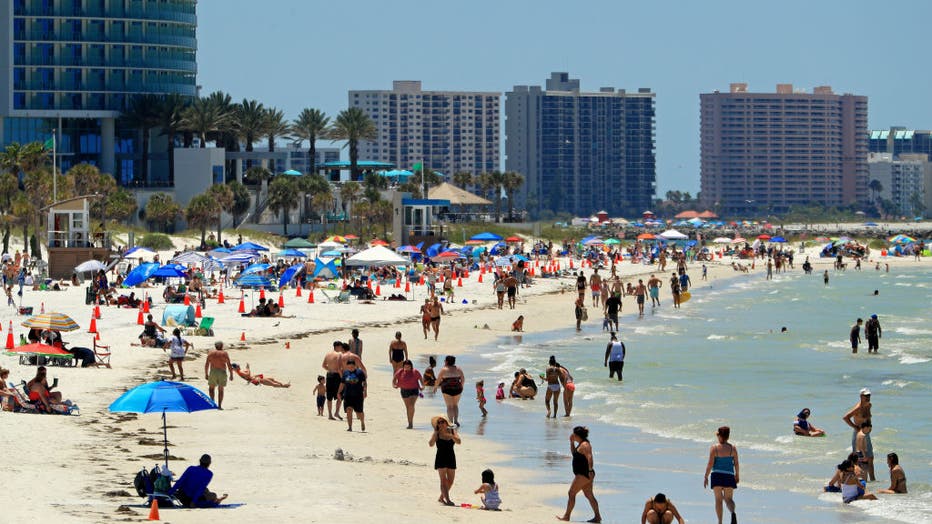Earth breaks September heat record, may hit hottest year on record
Earth sweltered to a record hot September last month, with U.S. climate officials saying there’s nearly a two-to-one chance that 2020 will end up as the globe’s hottest year on record.
Boosted by human-caused climate change, global temperatures averaged 60.75 degrees (15.97 Celsius) last month, edging out 2015 and 2016 for the hottest September in 141 years of recordkeeping, the National Oceanic and Atmospheric Administration said Wednesday. That’s 1.75 degrees (0.97 degrees Celsius) above the 20th century average.
This record was driven by high heat in Europe, Northern Asia, Russia and much of the Southern Hemisphere, said NOAA climatologist Ahira Sanchez-Lugo. California and Oregon had their hottest Septembers on record.

People visit Clearwater Beach after Governor Ron DeSantis opened the beaches at 7am on May 04, 2020 in Clearwater, Florida. (Photo by Mike Ehrmann/Getty Images)
The hottest seven Septembers on record have been the last seven.
That means “that no millennial or even parts of Gen-X has lived through a cooler than normal September,” said North Carolina state climatologist Kathie Dello, herself a millennial.
What’s happening is a combination of global warming from the burning of coal, oil and natural gas and natural variability, Sanchez-Lugo said. But the biggest factor is the human-caused warming, she and Dello said.
The globe set this record despite a La Nina, which is a cooling of parts of the central Pacific that changes weather patterns and usually slightly lowers temperatures.
“A La Nina is no match for how much we’re warming the planet,” Dello said.
The first nine months of 2020 are the second warmest on record, a shade behind 2016 when there was a strong warming El Nino. But Sanchez-Lugo said her office’s calculations show that there’s a 64.7% chance that 2020 will pass 2016 in the last three months to take the title as the warmest year on record. And if it doesn’t make it, she said it’ll easily be in the top three, probably top two.
“We’re catching up” to 2016, Sanchez-Lugo said. “It’s a very tight race.”
With the climate trend, heat records that looked like it would take many years to break get passed quicker, said Colorado University weather data scientist Sam Lillo.
Related
NOAA Winter Outlook 2020 released, Wisconsin favored to be wetter than average
NOAA has released their winter outlook for 2020-2021 and Wisconsin is favored to be wetter than average with an equal chance for above or below average temperatures


